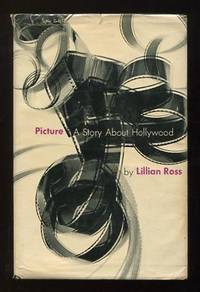Andrew O’Hagan at the LRB:
 Great reporting isn’t usually harmed by the reporter having a poor character. It may even be improved by it. Lillian just happened to be hard-bitten in the right way. Her pieces relied on a ruthlessness, sometimes a viciousness, that she didn’t try to hide and that other people liked to comment on. She talked a lot about not being egotistical and so on, but reporters who talk a great deal about not obtruding on the reporting are usually quite aware, at some level, that objectivity is probably a fiction, and that they are most present when imagining they’re invisible. (Lillian was in at least two minds about this, possibly six. One minute she’d say a reporter had to let the story be the story, the next she’d say it was ridiculous: a reporter is ‘chemically’ involved in the story she is writing.) By the time I knew her, Lillian was struggling against a sense that she had caused pain to Shawn’s widow, Cecille, who was still alive, and permanently changed the public view of that most quiet and dedicated of New Yorker editors. Though I liked the book, I believed she was fooling herself if she thought there wasn’t something more than candour at work in her portrayal of Shawn’s family and the reality of his life with them. She claimed she was his ‘real’ wife and that her adopted son, Erik, was ‘theirs’. She knew this was tendentious and took out her anxiety on people who pointed it out.
Great reporting isn’t usually harmed by the reporter having a poor character. It may even be improved by it. Lillian just happened to be hard-bitten in the right way. Her pieces relied on a ruthlessness, sometimes a viciousness, that she didn’t try to hide and that other people liked to comment on. She talked a lot about not being egotistical and so on, but reporters who talk a great deal about not obtruding on the reporting are usually quite aware, at some level, that objectivity is probably a fiction, and that they are most present when imagining they’re invisible. (Lillian was in at least two minds about this, possibly six. One minute she’d say a reporter had to let the story be the story, the next she’d say it was ridiculous: a reporter is ‘chemically’ involved in the story she is writing.) By the time I knew her, Lillian was struggling against a sense that she had caused pain to Shawn’s widow, Cecille, who was still alive, and permanently changed the public view of that most quiet and dedicated of New Yorker editors. Though I liked the book, I believed she was fooling herself if she thought there wasn’t something more than candour at work in her portrayal of Shawn’s family and the reality of his life with them. She claimed she was his ‘real’ wife and that her adopted son, Erik, was ‘theirs’. She knew this was tendentious and took out her anxiety on people who pointed it out.
more here.
